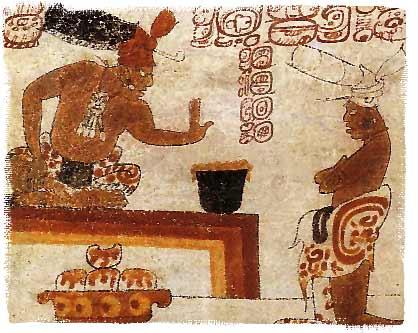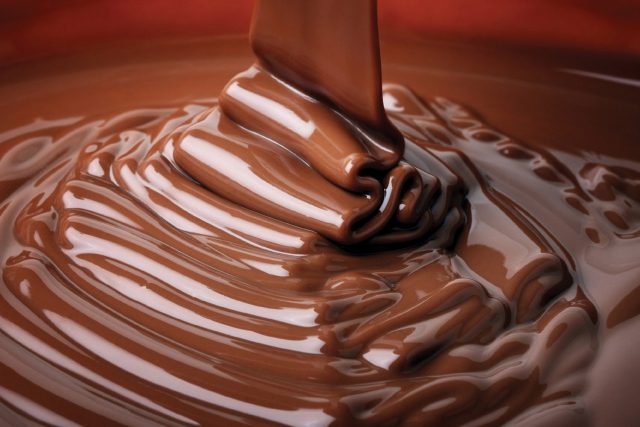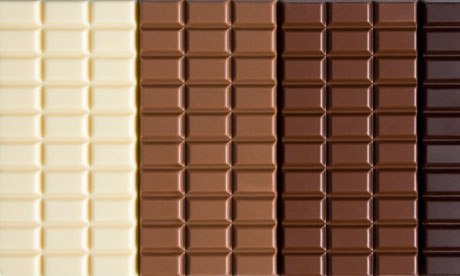Food of gods

Mayans considered chocolate to be the food of gods, something that is remembered in the scientific name of the cacao plant (Theobroma cacao). Although these presumably consumers are not any longer considered, chocolate is an important dietary source of flavonoid antioxidants, which are hypothesized to have a beneficial effect on endothelial function and protect against cardiovascular disease through antioxidant, anti-clotting and anti-inflammatory properties. It’s also possible that flavonoids in chocolate may decrease blood concentrations of bad cholesterol and reduce blood pressure. In fact, previous evidence suggests that intake of chocolate resulted in increased high-density lipoprotein (HDL) cholesterol concentrations and decreased low-density lipoprotein (LDL) oxidation. However, these studies have limitations with regard to participant selection and combined outcome measures and the potential benefits of raising chocolate consumption on cardiovascular risk a therapeutic measure that would be undoubtedly welcome by many of us was still uncertain.

A recent study 1 from researchers from the University of Aberdeen aimed to examine the association between chocolate intake and cardiovascular events. They used a big database (European Prospective Investigation into Cancer – EPIC) Norfolk cohort, that includes 20,951 men and women that were followed up for a mean of 11,3 ± 2.8 years, median 11.9 years. This study is tracking the impact of diet on the long term health of 25,000 men and women in Norfolk, England, using food frequency and lifestyle questionnaires. Chocolate intake was quantified using these questionnaires, and cardiovascular outcomes, including coronary heart disease, coronary heart disease mortality, stroke, and stroke mortality, were evaluated separately following hospital registries. 3,013 cases of fatal or non-fatal coronary heart disease or stroke were recorded in this population (14%).
One in five of those questioned said they never ate chocolate. Those who did admitted to between 7 g and 100 g a day. Comparing the highest and lowest quintiles of chocolate consumption, coronary heart disease was present in 9,7% and 13,8% of the examined population. The respective rates for stroke were 3,1% and 5,4%. The study provided evidence that higher intake of chocolate may be associated with lower cardiovascular disease and mortality. Those who ate more chocolate had an 11% lower risk of cardiovascular disease and a 25% lower risk of associated death compared to those who ate none. The researchers also carried out a systematic review of the available international published evidence on the links between chocolate and cardiovascular disease, involving almost 158,000 people–including the EPIC study participants. This meta-analysis of eight studies found a lower risk of cardiovascular disease with chocolate consumption. Evidently, such studies cannot conclude whether the chocolate is the cause of this protective effect.
Studies on animals can be done using an exact diet and many variables can be excluded. Studies in humans like this one are affected by many factors that can influence the results. The chocolate eaters tended to be younger and had lower weight (BMI), waist: hip ratio, systolic blood pressure, and inflammatory proteins than those who said they did not consume it. They did more physical activity and confessed to eating more calories in a diet with more fat and carbohydrates and less protein and alcohol than the rest. Many of these aspects add up to a favorable cardiovascular disease risk profile and, therefore, can be part of the difference.

Researchers also reported that milk chocolate appeared to be just as good as dark chocolate in contrast to usual recommendations. They pondered whether the calcium in the milk may be beneficial as well as the flavonoids in the chocolate. However, many consider that the sugar and fat present in the milk chocolate outweighs much of the good present in the cacao.
As the authors have indicated, reverse causation–whereby those with a higher cardiovascular disease risk profile eat less chocolate and foods containing it than those who are healthier–may also help to explain the results. Nevertheless, they add: “Cumulative evidence suggests that higher chocolate intake is associated with a lower risk of future cardiovascular events.” 2
This study confirms a previous research in Sweden 3 involving 37,103 Swedish men ages 49 to 75 that were given a food questionnaire that assessed how often they consumed various foods and drinks and were asked how often they had chocolate. Using a hospital discharge registry, it was found that, over ten years, there were 1,995 cases of first stroke in this population. Men in the study who ate the largest amount of chocolate, about 63 grams per week, had a lower risk of stroke compared to those who did not consume any chocolate. Those eating the highest amount of chocolate had a 17-percent lower risk of stroke, or 12 fewer strokes per 100,000 person-years compared to those who ate no chocolate. Person-years is the total number of years that each participant was under observation.
Although the health benefits are usually associated with dark chocolate, the Swedish study also mentioned that 90 percent of the chocolate intake in Sweden during the study was milk chocolate.
When summaries of these papers were published in online newspapers 4, many comments suggested that these studies were surely supported by the chocolate industry. It was not the case. The Swedish study (3) was supported by the Swedish Council for Working Life and Social Research, the Swedish Research Council/Committee for Infrastructure and the Karolinska Institute. In the case of the British paper (1), the EPIC-Norfolk study was supported by grants from the Medical Research Council and Cancer Research UK.
References
- Kwok CS, Boekholdt SM, Lentjes MA, Loke YK, Luben RN, Yeong JK, Wareham NJ, Myint PK, Khaw KT (2015) Habitual chocolate consumption and risk of cardiovascular disease among healthy men and women. Heart doi: 10.1136/heartjnl-2014-307050. ↩
- BMJ. (2015, June 15). Chocolate for your heart: Eating 100 g of chocolate daily linked to lowered heart disease and stroke risk. ScienceDaily. Retrieved June 20, 2015 ↩
- Larsson SC, Virtamo J, Wolk A (2012) Chocolate consumption and risk of stroke: a prospective cohort of men and meta-analysis. Neurology 79(12): 1223-1229. ↩
- Boseley S (2015) Daily chocolate dose may fend off heart disease – but don’t bet your life on it. The Guardian. June 16. ↩
1 comment
[…] Origen: Food of gods | Health | Mapping Ignorance […]